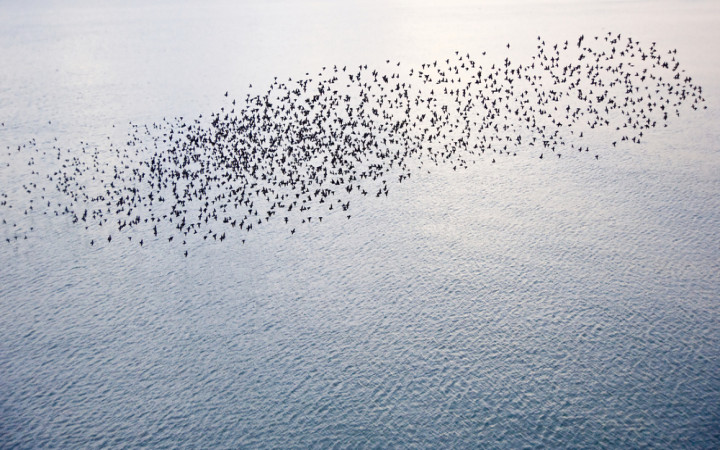Wonder Friends already know that birds of a feather flock together. But what do you call that flock when the birds of a feather are starlings? Give up? It's called a murmuration.
Have you ever seen a murmuration? If you have, you would know it. Seeing hundreds — even thousands — of starlings flying together in a whirling, ever-changing pattern is a phenomenon of nature that amazes and delights those lucky enough to witness it.
Luckily, a few murmurations have been caught on video. You can search online for “murmuration" videos to see for yourself how incredible these large flocks of birds can be.
As they fly, the starlings in a murmuration seem to be connected together. They twist and turn and change direction at a moment's notice. How do hundreds or even thousands of birds coordinate such complicated movement while in flight?
Do the birds plan out and practice their flying routines in advance? That's what we humans would have to do if we were to look that graceful. However, starlings don't plan or practice their flight patterns.
For years, scientists have WONDERed about murmurations. Recently, they have started to use cameras and computers to understand the mystery of murmurations.
Scientists have been surprised to learn that the flying patterns of murmurations have more in common with physics than biology. Much remains unknown about murmurations. However, scientists now believe they may be able to describe murmurations using the principles of physics.
Scientists believe murmurations are similar to other systems, such as crystals forming, avalanches, metals becoming magnetized and liquids turning to gases. These systems are “on the edge," which means they're ready to be completely transformed in an instant.
Like the elements of these other systems, each starling in a murmuration is connected to every other starling. As shown in today's video, when a murmuration turns in unison, scientists believe it's like a phase transition.
It's easy to understand how one starling knows to turn when its neighbor turns, since they're close together and can see each other. What scientists still don't understand, though, is how hundreds or thousands of starlings seem to know when to turn simultaneously, when birds at opposite ends of the flock are separated by space and hundreds or thousands of other birds.
Regardless of the size of the murmuration, all the birds seem to be connected to the same network. This phenomenon puzzles scientists, because it goes beyond what we know from biology about how animals behave. The mystery of the murmuration is a fascinating example of a natural phenomenon that hides secrets about the world that scientists have still yet to uncover!




